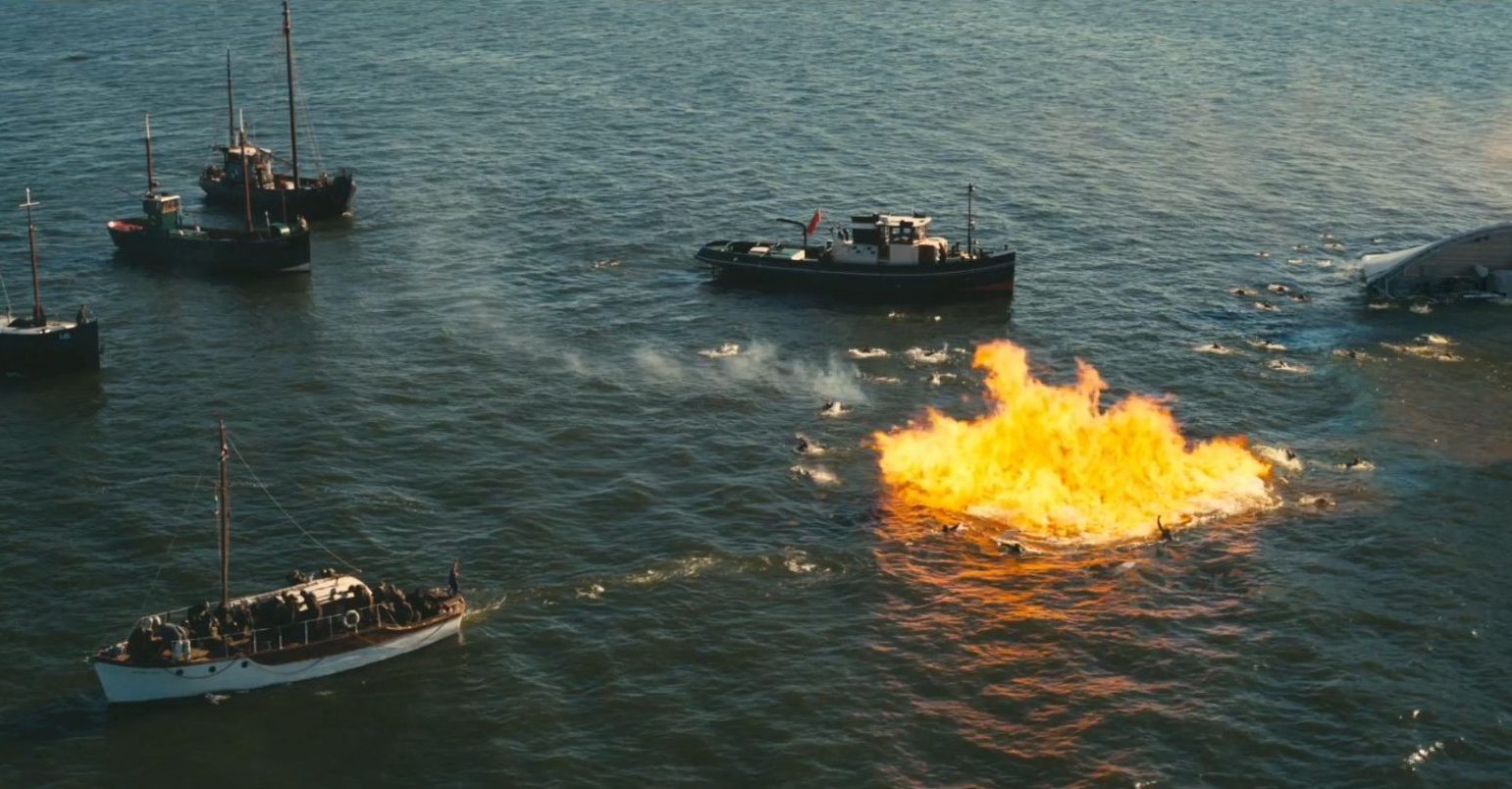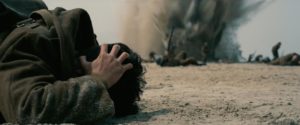Translating deep thinking into common sense
Dunkirk: When Civilians Rescued their Defenders

By Walter Donway
July 30, 2017
SUBSCRIBE TO SAVVY STREET (It's Free)
It is an unforgettable historical set-piece. Ordinary citizens rallied to salvage the catastrophe set up by their government. It has about it, in real-life and in this new film, something that defines, or once defined, the best in British character.
As with other highlights of World War II, my father first told me the story of the British evacuation of soldiers—the British Expeditionary Force (BEF) and French and Belgian allies—from the beaches of Dunkirk, where they had been cutoff and surrounded by the German blitzkrieg into France. I got the picture. Thousands of tiny British civilian boats, from racing yachts to fishing boats, at the desperate summons of Prime Minister Winston Churchill, bouncing across English Channel waves toward France—into the war zone—to take their sons, their soldiers, off the beaches and bring them home. It is an unforgettable historical set-piece. Ordinary citizens rallied to salvage the catastrophe set up by their government. It has about it, in real-life and in this new film, something that defines, or once defined, the best in British character.
Why Dunkirk, now? I don’t know; it is the (not notable) 77th anniversary of Dunkirk, which reached its climax in the first week of June 1940. There were almost 400,000 soldiers on the French beaches at Dunkirk—just 10 miles south of the Belgian border. Neutral Belgium, which the Germans astounded the world by choosing as their route to invade France, had been conquered in just days. The French forces had fallen back before the advancing Nazi war machine. And the British Expeditionary Force, sent to keep faith under Britain’s mutual defense treaty with France, attacked by Germany, had been caught up in the rout.
The film is uninhibited in presenting Dunkirk as a moment of British agony and heroism. And that is as it should be. In the structure that the film makers chose to tell the story—land, sea, and air—there is plenty of both. Moreover, the film is frank about the context, quoting Churchill’s admonition that a successful evacuation must not be lionized as a victory.
The film is uninhibited in presenting Dunkirk as a moment of British agony and heroism. And that is as it should be. In the structure that the film makers chose to tell the story—land, sea, and air—there is plenty of both. Moreover, the film is frank about the context, quoting Churchill’s admonition that a successful evacuation must not be lionized as a victory. Instead, Churchill warned, and all Britain expected, that within weeks Hitler would attack Britain across the Channel. Churchill, according to the film, fervently urged that at least 30,000 soldiers be saved from the meat-grinder on Dunkirk beaches, where the Luftwaffe hourly blew apart assembled troops and both arriving and departing ships with bombs and strafing. During the event, thanks to the miraculous Dunkirk fleet of “little ships,” some 300,000 soldiers were evacuated and returned to Britain for defense of the island. Why the expected cross-channel invasion by Hitler’s forces never took place, why Hitler suddenly pivoted eastward to invade the giant Soviet Union, remains perhaps the most debated development in World War II.
In fact, evacuation of Dunkirk, an enclave ringed by German forces, may have been possible thanks to another decision by Hitler, who ordered his forces around Dunkirk to stop advancing. The Luftwaffe, at little cost, now could annihilate the trapped British troops. It may have been a miscalculation that enabled the British to save its army.
A young British private (played by newcomer Fionn Whitehead), out with comrades to enjoy a moment of “relaxation” in Dunkirk, to find a cigarette perhaps, suddenly discovers the meaning of the British “defense perimeter.” German troops open fire that mercilessly mows down the soldiers fleeing toward their own defense line—but only Tommy lives to reach the sandbagged fortifications. We never are “introduced” to young British “Tommy” (also, of course, the generic British term for a solider.) We just begin following him.
Tommy meets up with another generic “refugee” from the battle, Gibson (Harry Styles), and together they go for the main chance, scooping a wounded soldier onto a stretcher and racing along the beach to where soldiers, with priority for the wounded, are being boarded on rescue vessels. Thus, begins the film’s story of those who embark, are torpedoed, swim to a new ship, are bombed, dive back into the sea, swim through oily waters that burst into flames. The grueling physical action, the explosive upsets, the hopes that turn to terror are all experienced through the eyes of these men, not much more than boys.
The film’s “distance” from Tommy and Gibson, including thoughts and most dialogue, seems to lessen some when the story turns to the “air.” All three stories, of course, take place simultaneously—or in parallel—but the battle in the air is focused on three Royal Air Force (RAF) pilots crossing the Channel with limited fuel—and so with limited time to fight when they arrive. The pilots in the three cockpits are always in close-up and their dialogue, only by radio with other pilots, is clipped and to the point.
On the beaches, history tells us, there was grumbling and cursing by soldiers and officers when unopposed Luftwaffe bombers dived again and again literally blowing apart British soldiers who had no cover. They noticed, to say the least, that there seemed to be no RAF fighters to take on the bombers. Where the hell was the bloody RAF?
Part of the explanation is what happens to the three RAF fighter planes we are following. Approaching Dunkirk, they begin to encounter Luftwaffe pilots sent out to stop them, and also to bomb both approaching and departing rescue ships. They engage in the classic “dog fights,” one of the deadliest but somehow romantic and fascinating ways men on both sides fought. Many of these battles took place out of sight of the shore, so German planes went flaming into the Channel unseen from the beaches. The RAF pilots, too, went down out of sight of the beaches—and not close enough to engage Luftwaffe bombers hitting the troops.
 Dramatic crashes and rescues of the RAF pilots bring into the picture the “sea” story. Literally thousands of small British boats—Channel worthy, but not much more—were either commandeered by the Navy, or, far more often, simply set out for Dunkirk piloted by their owners. We follow a father (Mark Rylance) who is a military veteran with none of his determination, discipline, or courage diminished, as he motors across the Channel with his son and a teenaged boat hand. Here, the eye of the camera is closer and more attentive, partly because the sound and fury of war still lie ahead.
Dramatic crashes and rescues of the RAF pilots bring into the picture the “sea” story. Literally thousands of small British boats—Channel worthy, but not much more—were either commandeered by the Navy, or, far more often, simply set out for Dunkirk piloted by their owners. We follow a father (Mark Rylance) who is a military veteran with none of his determination, discipline, or courage diminished, as he motors across the Channel with his son and a teenaged boat hand. Here, the eye of the camera is closer and more attentive, partly because the sound and fury of war still lie ahead.
When the yacht takes a shell-shocked British airman (Cillian Murphy) off the floating wreck of his fighter, the family has its own battle. Incredulous that he has been picked up by a pleasure boat heading not to England but back to Dunkirk, the soldier loses it and tries to take control. The scuffle ends in tragedy for one of the boys. The civilian rescue at Dunkirk exacted many costs of many kinds, including of course bombing and strafing of the little boats as they were loaded to capacity with soldiers who had waited hours in water up to their necks. It is the attitude of the father, Mr. Dawson that captures so convincingly the understated, almost matter-of-fact British style of heroism.
None of the “stories” end with all the protagonists alive and safe in Britain. That just wasn’t the killing fields of Dunkirk. The last one that we see is the leader of the little RAF group of three, Collins (Jack Lowden). Throughout, Collins has warned the two pilots under his command to watch their fuel gauges constantly to be sure of having enough to reach home after the mission. As both go down into the sea—though rescued, since a lot of boats are around—Collins soars and dives and spins into dog fight after dog fight as he sees one ship after another come under Luftwaffe bombing attack.
By the end, his fuel is gone, his propeller becomes still, and the sun is setting over Dunkirk beach. He still has altitude and as he glides toward the beach he sees one more bomber below him blowing apart a rescue vessel. For a few seconds, he has the bomber in his gunsight and fires, bringing it down. Troops on the beach cheer; the colonel in charge of embarking all troops gazes up with a kind of stunned joy at the noiseless fighter.
For reasons not clear to me, the silently gliding plane follows the beach along the Channel far away from the clustered British troops, till miles later it touches down. By this time, it has reached the sector of the beach controlled by the Germans.
Collins climbs out, realizes what has happened, and tosses what may be an ignited flare into the downed plane’s cockpit. In the flames of the burning plane, the Germans with levelled guns surround the calmly waiting Collins.
Arrival of the first troops in Dorset and Dover is a scene of weary, stained, and ragged happiness. But in trains taking troops home, the real greeting begins with civilians at the stations rushing the train to hand bottles of beer, newspapers, and food in through the windows. (You could open train windows, back then.)
Tommy has gotten hold of a newspaper and begins reading aloud from Churchill’s immortal summons in the House of Commons, June 4, to his defeated countrymen to rally, prepare to fight, to remain free or die.
…we shall fight on the seas and oceans, we shall fight with growing confidence and growing strength in the air, we shall defend our island, whatever the cost may be. We shall fight on the beaches, we shall fight on the landing grounds, we shall fight in the fields and in the streets, we shall fight in the hills; we shall never surrender, and if, which I do not for a moment believe, this island or a large part of it were subjugated and starving, then our Empire beyond the seas, armed and guarded by the British Fleet, would carry on the struggle, until, in God’s good time, the New World, with all its power and might, steps forth to the rescue and the liberation of the old.
And that, although not specifically an invasion of Britain, came to pass.








Excellent review. It’s parallels other stories I’ve read about Dunkirk. The heroism of the British people was admirable. Looks like it’s being tested today with immigrants who don’t want to assimilate to British culture. I wonder if the welfare state in Britain has lessened some of their patriotism.